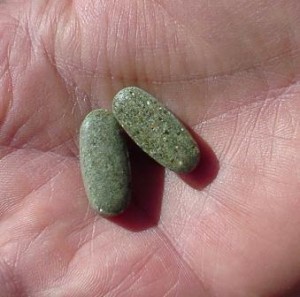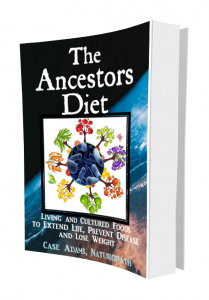Multivitamins Reduce Deaths in Study
 A large study has proven that taking multivitamins can signficantly reduce the risk of early death.
A large study has proven that taking multivitamins can signficantly reduce the risk of early death.
In this article
Large multivitamin study
Two medical experts have published a review of the recent Iowa Women’s multivitamin study data that shows the study actually revealed that multivitamins and a number of single vitamins and minerals reduced mortality rates among the group.
The study analyzed the results of 38,772 women that measured deaths and supplement use between 1986 and 2008. The initial research used multivariable adjustments to the results, which indicated that certain supplements increased the risk of death, including vitamin B6, folic acid, magnesium, copper, iron, and vitamin E.
In the new review of the study data, Carolyn Dean, M.D., N.D. and Robert G. Smith, a Research Associate Professor at the University of Pennsylvania’s Department of Neuroscience, and a member of the Institute for Neurological Sciences, found that:
- vitamin B complex use was linked with 7% decrease in death rate
- vitamin D supplementation was linked with an 8% reduction in deaths
- vitamin C use was linked with 4% percent reduction in deaths
- magnesium was linked with a 3% reduced percent reduction in deaths
- selenium and zinc supplementation also reduced deaths
Dr. Smith commented on the clarified results of the study. “This study showed a benefit from taking B-complex, C, D, and E vitamins, and calcium and magnesium. Therefore, if those wanting better health would take appropriate doses of supplements regularly, they would likely continue to achieve better health and longer life.”
Risks of iron and copper
The review did not deny the risks associated with iron and copper supplements that were revealed by the initial study’s researchers. “Iron and copper supplements, which are known to be potentially inflammatory and toxic when taken by older people, because they tend to accumulate in the body, should not be generalized to imply that all vitamin and nutrient supplements are harmful,” commented Professor Smith.
Dr. Dean, a noted author and nutritional expert, discussed the importance of adequate magnesium. “Most people can benefit from magnesium supplementation because this vital mineral is sorely lacking in our standard American diet. Over 75 percent of Americans don’t get their recommended daily allowance of this multi-tasking mineral. Additionally, many people may not be getting the full benefits from vitamin D without also supplementing their diets with magnesium, which is a vital nutrient that works synergistically with vitamin D.
“Adequate levels of magnesium in the body are essential for the absorption and metabolism of calcium as well. Magnesium converts vitamin D into its active form so that it can help calcium absorption. Magnesium stimulates a particular hormone, calcitonin, which helps to preserve bone structure and draws calcium out of the blood and soft tissues back into the bones, which can help prevent osteoporosis, some forms of arthritis and kidney stones.”
Safety record compared to pharma meds
The report also compared the safety record of dietary supplements with those of prescription medications.
Dr. Jagan Vaman and Dr. Andrew W. Saul found, in an analysis of American Association of Poison Control Centers’ data that there have been no deaths attributed to vitamins in 27 years of reporting. The study was published in the Journal of Orthomolecular Medicine. The study’s authors stated that, “Vitamin therapy is tens of thousands of times safer than drug therapy.”
A 2010 study by the Substance Abuse and Mental Health Services Administration and the Centers for Disease Control published last year found that prescription painkillers caused more than 300,000 emergency room visits in 2008. This was double the 144,644 ER visits for these painkillers in 2004.
According to an ABC News report, prescription drugs now cause more death than motor vehicle accidents. Dr. Leonard Paulozzi, medical epidemiologist at the CDC’s division of unintentional injury prevention, commented on the report. “There has been a dramatic increase in the use of prescription drugs as physicians have become more liberal in prescribing them,” according to the report.
Learn more about natural sources of vitamins, minerals and other nutrients:
REFERENCES
Evidence Summary: Vitamin Supplementation to Prevent Cancer and CVD: Preventive Medication. U.S. Preventive Services Task Force. February 2014.
Smith RG. Dean C. Vitamins and Minerals Lower Risk of Mortality – Study Confirms. Nutritional Magnesium Association Press Release. 2011 Oct 26.















